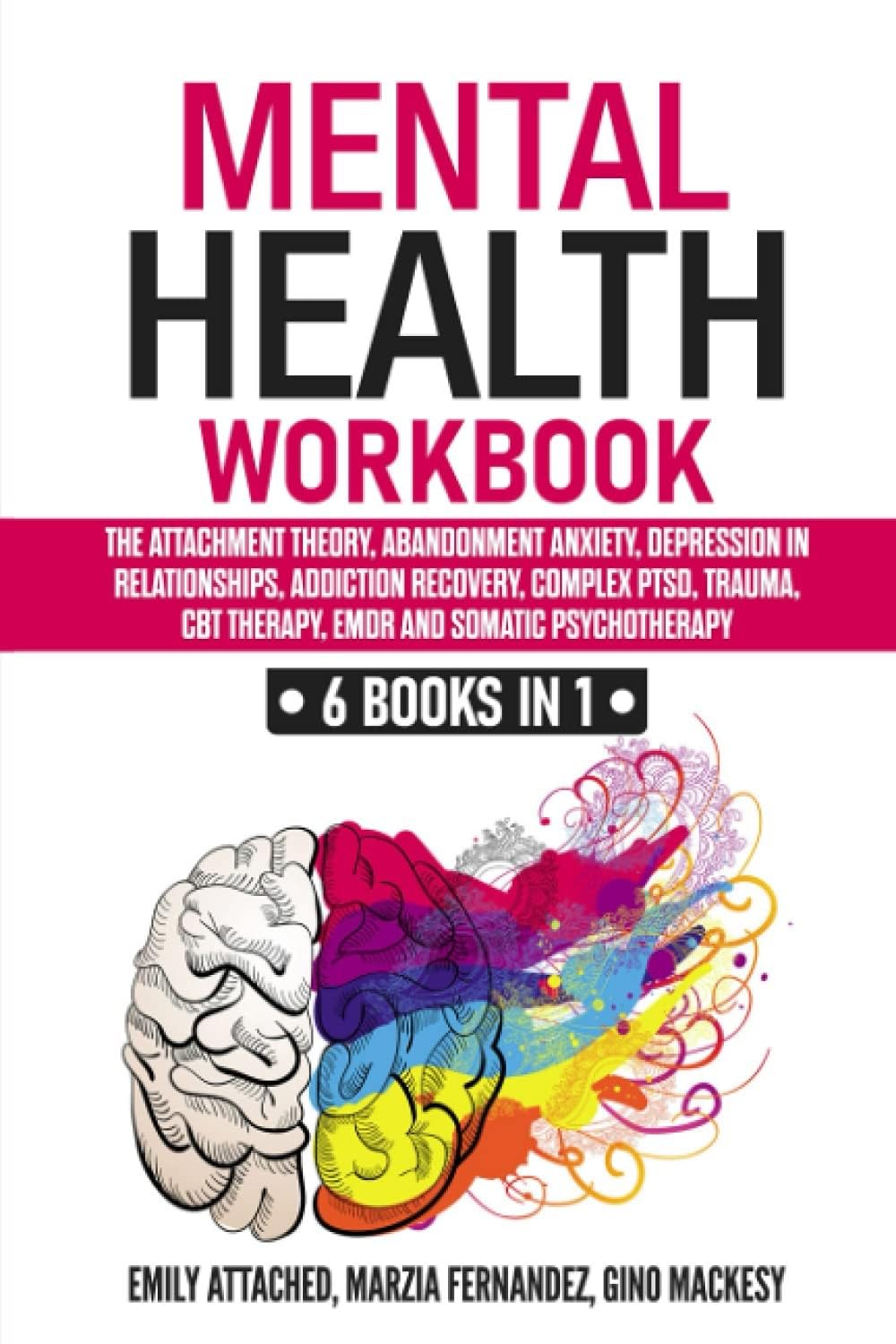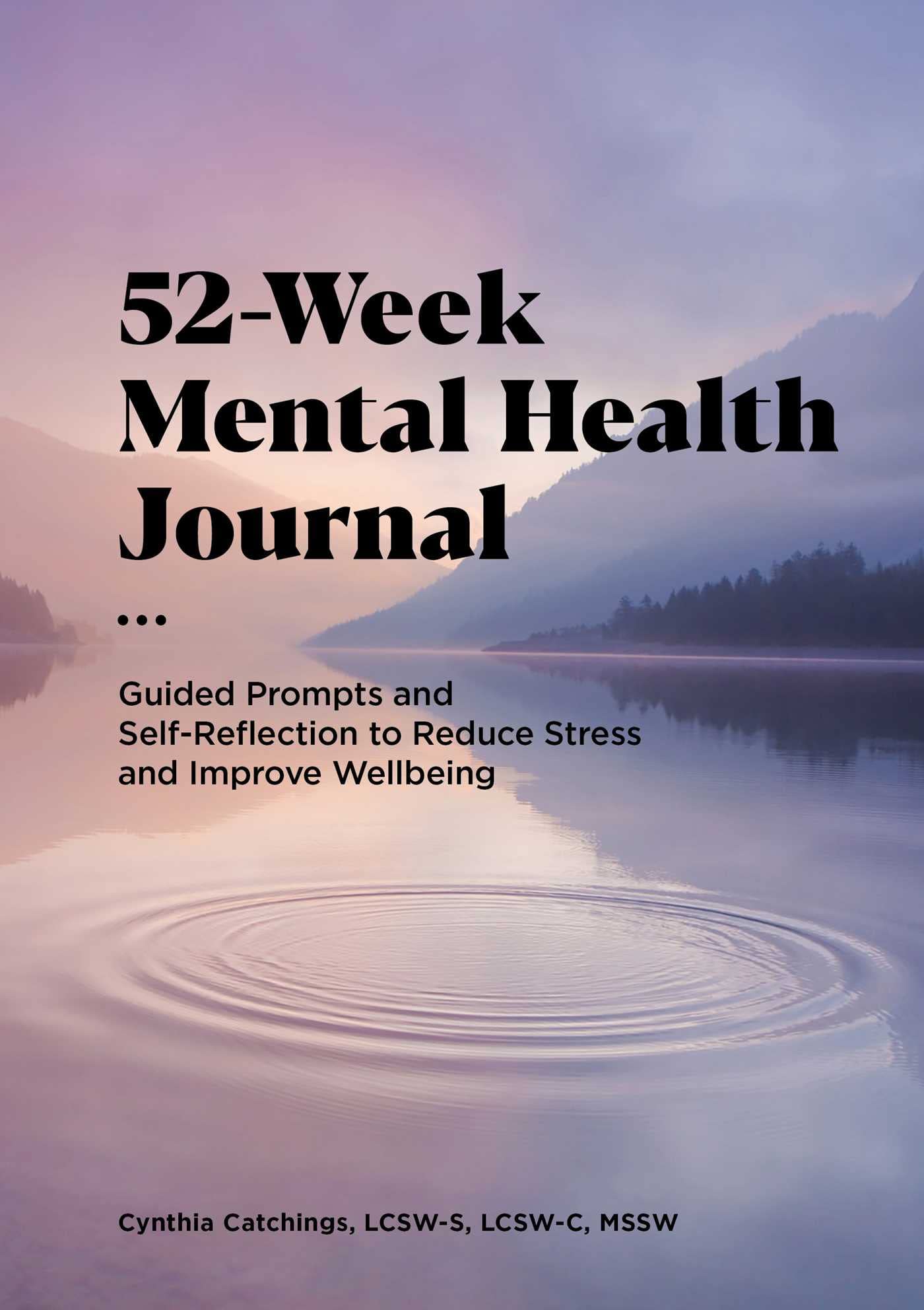Mental health is an essential aspect of overall well-being, yet it often remains a topic shrouded in stigma and misconceptions. Recognizing the signs of mental health issues and understanding the strategies for managing them is critical. Books on mental health serve as valuable resources for individuals seeking to improve their psychological health, providing insights from experts, sharing others’ experiences, and offering practical advice for coping with emotional and mental challenges.
Within the domain of mental health, a standout category is bestselling mental health books. These are the titles that have resonated most strongly with readers, often reflecting the contemporary concerns and therapeutic approaches deemed most effective. They cover a range of topics, including mindfulness, anxiety, depression, resilience, and happiness, providing tools and narratives that can empower readers to enact positive changes in their lives.
When choosing a mental health book, several factors demand careful consideration. Prospective readers should contemplate the author’s expertise and background, ensuring that the information is credible and backed by relevant qualifications or personal experience. The book’s focus is also paramount—whether it targets a specific mental health issue or seeks to improve overall mental well-being. Further, the style of writing and the approach to the topic—be it scientific, anecdotal, or hands-on—can significantly influence the reader’s engagement and the book’s impact on their life.
Our exploration of bestselling mental health books aims to highlight those that have been particularly impactful, widely acclaimed, and offer meaningful insight into the complexities of mental health. By guiding readers through this selection, we hope to connect them with resources that not only enrich their understanding but also provide practical guidance for better mental health. This sets the stage for an in-depth look at the individual titles that have shaped the way we think about mental wellness today.
Bestselling Mental Health Books
Our understanding of mental health has grown exponentially, making the wealth of knowledge shared through books more valuable than ever. With so many options out there, we’ve carefully selected books that have not only topped the charts but have also resonated with readers seeking to improve their mental wellbeing. Whether you’re a professional in the field or someone looking to gain insights into mental health, our lineup of bestselling mental health books is curated to guide, educate, and inspire.
Mental Health Workbook Series
We think this collection might be a valuable aid for individuals looking to embark on a journey of self-discovery and healing.
Pros
- Comprehensive content across six key topics
- Versatile approach, including various therapeutic techniques
- Appears to be a beneficial precursor to professional therapy
Cons
- Some users reported grammatical errors
- May contain more introductory-level information than expected
- Physical layout of the pages could be improved according to a few reviews
This anthology is crafted to offer insight into a plethora of psychological challenges, from attachment theory to addiction. With its extensive span of topics, the series seems well-suited as a broad starting point for those beginning to navigate the complexities of mental health.
In integrating diverse therapeutic methods like CBT, EMDR, and Somatic Psychotherapy, the workbook intends to serve a wide audience. Its multifaceted approach may encourage readers to explore various angles of mental wellness.
A concern some readers may face is the book version’s typographical and structural elements, suggesting a possible compromise on quality in those aspects. Nevertheless, the content’s substance seems to withstand these shortcomings, remaining a central resource for understanding and personal growth.
The Vulnerable Man
We believe a read like “The Vulnerable Man” could be a valuable tool for those seeking to understand the intricacies of male vulnerability and emotional self-awareness.
Pros
- Tackles the often-ignored topic of male sensitivity and vulnerability with a refreshing honesty.
- Engaging format using the author’s personal journal entries for an authentic narrative.
- Encourages self-reflection and may be a source of comfort for similar individuals.
Cons
- The diary-style writing might not resonate with all readers looking for a traditional self-help format.
- May feel overly personalized at times, which can affect the relatability for some.
- Intense focus on the author’s personal experiences could limit wider applicability.
Books can be powerful gateways to personal growth and understanding, and “The Vulnerable Man” by Thomas Anderson stands out by confronting the often stereotyped topic of masculine vulnerability. As we explore its pages, the narrative reveals a transparent journey through Anderson’s most critical moments, providing readers with a first-hand view of a man grappling with emotional depth.
The unconventional use of diary entries pulls us into the palpable rawness of the author’s experiences. Anderson’s dual perspective as both narrator and protagonist in his reflections offers a unique angle on personal evolution. Readers who have struggled to articulate or confront their emotional world may find solace in the mirrored journey.
While the book provides an intimate peek into sensitive topics, which can foster solidarity and understanding, it might not align with expectations of readers who prefer more straightforward guidance or strategies for mental well-being. Additionally, the deep dive into personal anecdotes of the author means that certain lessons may need adaptation for them to apply to a broader audience.
In summary, “The Vulnerable Man” should be approached with an open mind and could serve as a courageous voice for anyone looking to delve into the complex themes of vulnerability and emotional health.
Stop Overthinking
If you frequently find yourself stuck in negative thought loops, “Stop Overthinking” might offer the strategies to steer your mind towards a calmer state.
Pros
- Outlines clear and actionable techniques to manage stress and anxiety.
- Relatable content that connects with the constant overthinker.
- Offers concise guidance that’s easy to follow and implement.
Cons
- Some readers may require more in-depth analysis or scientific backing.
- May not suffice for those with severe anxiety without professional support.
- Those well-versed in mental health strategies might not find new information.
Overthinking can be an exhausting spiral that impacts our day-to-day life significantly. “Stop Overthinking” positions itself as a lifeline for readers in search of easy-to-digest strategies to break free from this taxing mental pattern. We appreciate that the book presents a variety of techniques, allowing readers to choose the ones that resonate most with their personal struggles. Its practical advice is aimed at fostering mindfulness and present-moment awareness.
Readers might delight in the clarity with which this book approaches the topic of mental clutter. It’s crafted for real-world application, which is essential for anyone needing immediate and accessible relief from the stress of their own thoughts. The conversational tone makes the content approachable, ensuring that readers from all walks of life can understand and apply the advice.
However, those with a deep understanding of mental health may long for more profound insights into the science of overthinking and stress management. While the book is praised for its straightforwardness, some may find the content a bit too basic. It shines as a starting point or a refresher, but not necessarily as a comprehensive guide for advanced learners in the field of psychological self-help.
In conclusion, “Stop Overthinking” serves as a handy tool for realigning thoughts and restoring peace of mind. Its direct approach empowers us to take actionable steps toward mental wellness, whether we’re beginners in self-help strategies or simply in need of a mental tune-up.
52-Week Mental Health Journal
We find this journal effective for those seeking structured self-reflection and stress reduction over the course of a year.
Pros
- Provides a variety of guided prompts for daily reflection.
- Could be a valuable supplement to professional therapy.
- Offers a full year’s worth of content to work through.
Cons
- Some prompts may seem unexciting or lackluster.
- Requires commitment to daily use for best results.
- Users may forget to use it consistently.
The “52-Week Mental Health Journal” offers a guided pathway to better mental health through daily prompts and self-reflection. Its format is designed to encourage users to ponder their thoughts, feelings, and actions systematically over a year, which can lead to valuable insights and personal growth.
Picking up this journal could be a powerful step for those ready to engage in daily introspection. The prompts are crafted to vary in nature—some may be light and engaging, while others could require deeper thought. This mix ensures that the process stays refreshed and that the user is continually challenged.
For individuals in therapy, the journal’s prompts often resonate with topics discussed during sessions, thus reinforcing and extending the benefits of therapy. However, discipline is required. Users must make a habit of reflecting daily to truly reap the rewards the journal has to offer, and life’s distractions might sometimes get in the way. Overall, our recommendation leans toward the positive, given the journal’s potential to significantly enhance one’s mental well-being.
Self-Love Workbook
We think this workbook is an invaluable resource for women seeking to enhance self-compassion and embrace self-worth.
Pros
- Encourages positive self-reflection through interactive activities
- Accessible and aesthetically pleasing design promotes engagement
- Highly rated by many as a transformative self-help tool
Cons
- Content may be too basic for those well into their self-love journey
- Physical workbook may not appeal to those who prefer digital tools
- Some exercises might seem repetitive for advanced users
This workbook stands as a beacon for anyone on the path to fostering greater self-love. Its structured approach helps navigate the sometimes daunting journey of self-discovery.
The content is presented in a user-friendly format, which makes getting started a seamless process. Whether just beginning or continuing on the path to self-compassion, there’s something in these pages for every woman.
The testimonials of transformative experiences stand as a testament to the workbook’s effectiveness. However, every individual’s journey is unique, and what works for one may not resonate with another. With that in mind, the workbook might serve as the stepping stone that leads to a path of profound personal growth.
Buying Guide
Assessing Your Needs
Before diving into the array of mental health books, we need to determine our individual requirements:
- Purpose: Are we seeking self-help strategies, scholarly knowledge, or personal enlightenment?
- Expertise Level: Are we beginners in mental health topics or looking for advanced material?
Understanding the Focus Area
Mental health encompasses various topics, so we’ll categorize our interests:
- Themes: We may look for books on anxiety, depression, wellness, or therapy techniques.
- Approaches: Do we prefer scientific explanations, personal stories, or practical exercises?
Evaluating Author Credentials
It’s crucial to consider the author’s background:
- Qualification: We check if the author is a psychologist, psychiatrist, or mental health professional.
- Experience: Has the author received recognition or awards in the mental health field?
Content Clarity and Comprehension
We want books that strike a balance between detailed information and understandability:
- Structure: Is the book organized effectively with clear chapter headings and summaries?
- Language: We seek content that’s clear and without excessive jargon, suitable for our reading comfort.
Format and Accessibility
Our preferred format may affect which book we opt for:
- Physical vs. Digital: Do we want a hardcover, paperback, or an e-book?
- Accessibility: Is the book available in audio format or accessible to those with visual impairments?
Reviews and Recommendations
Lastly, feedback from other readers can be insightful:
Source Why It’s Helpful Reader Reviews Provides personal experiences Professional Endorsements Cements credibility Bestseller Lists Suggests popularity and relevance
By considering these aspects, we can choose the best mental health book that meets our specific needs.
PsyPost is a part of the Amazon Services LLC Associates Program, an affiliate advertising initiative that helps us earn advertising fees by linking to Amazon.com. When you click on a link and make a purchase, we earn a commission at no extra cost to you.




